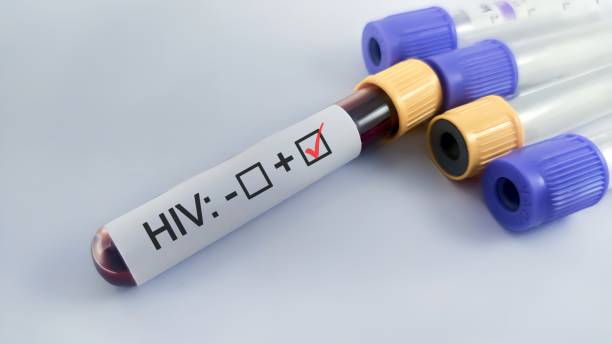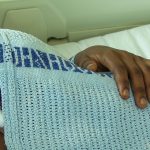Recruit dismissed after HIV status was publicly exposed and awarded Ksh1 million. KDF ordered to comply with HIV and AIDS Prevention and Control Act
A Kenya Defense Forces (KDF) hopeful who was dismissed during recruitment and given Ksh1,000 bus fare after his HIV positive status was publicly exposed by an army officer, has been awarded Ksh1 million.
In a game-changing ruling, the six-member HIV and AIDS Tribunal chaired by Carolyne Mboku has ordered KDF to fully comply with the HIV and AIDS Prevention and Control Act (HAPCA) in their recruitment and medical procedures.
The compensation included Ksh400,000 for lack of informed consent for HIV testing, Ksh250,000 for the absence of pre- and post-test counselling, and Ksh400,000 for discrimination based on HIV status.
The landmark decision, which impacts KDF’s massive recruitment drives—about 4,000 recruits per session—requires the Force to ensure all candidates receive comprehensive pre-and post-test counselling as part of the HIV testing process, supporting their mental and emotional well-being.
The ruling follows the case in which a recruit, identified as PRJ in court documents to protect his privacy, arrived at the KDF Recruit Training School in Eldoret one scorching December day in 2021 armed with a calling letter confirming his successful enlistment.
PRJ resigned from the National Youth Service (NYS) after passing a medical examination and interview with the KDF in November.
However, what awaited him was a harrowing ordeal that would shatter his dreams and raise critical questions about the responsibility of institutions, including the military, in upholding the dignity and rights of people living with HIV (PLHIV).
PRJ’s troubles began during a routine medical examination on December 26, 2021, at the training school. Unbeknown to him, this test included an HIV screening.
No pre-test or post-test counselling was offered, violating established medical guidelines under the HIV and AIDS Prevention and Control Act.
PRJ’s world came crashing down when a recruiting officer on January 2, 2022, publicly announced his HIV-positive status in front of fellow “makurutu”, leading to immediate dismissal from the training program.
“I had no idea about my status,” PRJ testified later. “The results were never disclosed to me privately, and I was never counselled.”
As the sole breadwinner for his family, PRJ was thrust into a psychological and financial abyss, avoiding his home for fear of stigma and judgment.
Determined to fight back, PRJ filed a claim with the HIV and AIDS Tribunal in November 2022. His demands were clear: recognition of the discrimination he had faced, punitive damages for the emotional suffering endured, and institutional reform within KDF to prevent similar injustices.
Central to his case was the argument that KDF’s actions violated HAPCA, which prohibits discrimination based on HIV status.
HAPCA is a landmark legal framework in Kenya, designed to address the challenges of HIV/AIDS through prevention, care, and the protection of human rights. It advocates for the importance of confidentiality, informed consent, and non-discrimination, fostering an environment of dignity and support for individuals affected by the epidemic.
A critical aspect of the Act is the requirement for informed consent before HIV testing, ensuring that individuals fully understand and agree to the process without coercion. It also mandates pre-and post-test counselling to provide psychological and social support, particularly for those receiving positive diagnoses.
Confidentiality is paramount, with strict prohibitions on disclosing HIV test results without the individual’s consent. The Act explicitly outlaws discrimination in workplaces, schools, and healthcare settings, safeguarding equal opportunities for all, regardless of HIV status. Additionally, it promotes public awareness and education to combat stigma, enhance prevention, and encourage early testing and treatment.
Through his lawyer Jacquelyn Katee, PRJ also called for mandatory training within KDF on confidentiality, HIV counselling, and testing procedures, underscoring the need for systemic change.
In its ruling, the HIV and AIDS Tribunal emphasized that KDF is not exempt from the 2006 Act, reinforcing its obligation to uphold these laws.
KDF, however, painted a different picture. Their representative, Maj. EKM, denied PRJ’s allegations, suggesting his calling letter and medical report were “forgeries”. Maj. EKM testified that the serial numbers on these documents did not match KDF’s records and pointed out irregularities, such as the absence of a signature on the calling letter.
However the defence faulted the allegations as KDF could not produce evidence of any forgery complaints filed with the police regarding the recruit.
On July 26, 2024, after nearly two years of legal proceedings, the Tribunal ruled that KDF discriminated against the Claimant by denying him employment for which he was qualified, solely based on his perceived HIV status. This action was found to violate Section 31 of HAPCA.
“KDF’s first witness testified that their recruitment standards border medical fitness, physical fitness, spiritual fitness as well as moral fitness. However, PLHIVs should be embraced and allowed to serve due to the advancement in HIV testing and treatment,” said the Tribunal in its judgment. “This Tribunal holds that KDF is not excluded from the operations of the HAPCA and encourages KDF to train its personnel and uphold the provisions of the Act.”
Additionally, the ruling demands that KDF uphold the highest standards of confidentiality regarding recruits’ medical information. HIV test results can only be shared with explicit consent, safeguarding the recruits’ privacy and dignity.
The judgment also directs KDF to adjust to modern times and put an end to any form of discrimination based on HIV status, ensuring that health conditions don’t affect decisions related to recruitment, training, or employment, and fostering a more inclusive and equitable environment.
Drawing on comparative legal studies and international jurisprudence, the Tribunal sited the US Department of Defense which on June 22, 2024, updated its policy against discrimination of officers based on their HIV status.
As PRJ soldiers on confidently in search of a new job, triumphant after defeating the KDF in court, we are reminded of the arduous journey faced by people living with HIV (PLHIV) in Kenya—a journey where employment and insurance were once distant dreams until the law intervened in their defense.
For many years, a positive HIV status served as an invisible barrier, shutting out PLHIV from meaningful opportunities. Employers and insurers routinely used HIV as a reason to deny jobs or coverage, leaving individuals marginalized and struggling. Insurance companies often excluded HIV-related treatment from their policies, forcing those affected to bear the full cost of care—a burden many could not afford. Simultaneously, mandatory HIV testing during recruitment became a tool of discrimination, with those testing positive either rejected outright or relegated to precarious roles with little security or benefits.
A glimmer of hope emerged in the early 2000s with the rollout of antiretroviral therapy (ART) programs, which transformed HIV from a life-threatening diagnosis into a manageable condition. This medical advancement, coupled with local and global advocacy, began to chip away at the stigma surrounding HIV. The introduction of the HIV and AIDS Prevention and Control Act (HAPCA) in 2006 marked a pivotal moment. For the first time, the law unequivocally prohibited discrimination based on HIV status, granting PLHIV the right to fair treatment in employment and insurance.
Cases like PRJ’s victory serve as critical milestones, not just for the individual, but as a rallying cry for justice, reminding us of the importance of holding systems accountable to ensure a future where stigma and prejudice are gunned down.





















